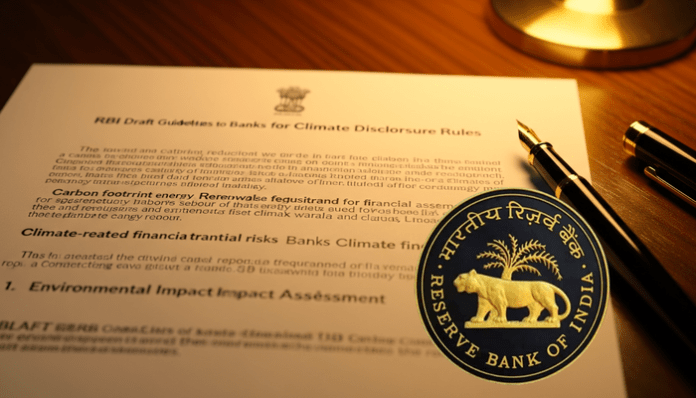The Reserve Bank of India is in the process of working out rules for banks and financial institutions for the disclosure and management of risks arising from climate change. The move is aimed at reducing carbon emissions by shifting high-emission investments to low-emission substitutes, to help achieve the country’s climate targets.
According to a report in Reuters, the central bank’s attempt is in line with the global efforts in shifting to low-carbon economies by assessing the amount of money being directed towards carbon-intensive activities as well as green investments. Similar disclosures have already been made compulsory in countries like the UK and Japan. However, the development comes against the backdrop of several global banks, including JP Morgan, Citibank, Morgan Stanley, and HSBC, whittling down their climate commitments after the re-election of Donald Trump as the US President.
Banks to include climate-change related risk in loan portfolios
Since 2022, the RBI has reportedly been working on the rules, which will require banks and financial institutions to make regular disclosures about climate-related risk in their loan portfolios, accompanied by mitigation strategies and targets. Initially, the disclosures are likely to be made voluntarily, effective from fiscal year 2027 and will eventually be made compulsory from the next fiscal year, i.e. 2028.
Under the central bank’s assessment rules for climate change, banks will also have to conduct periodic stress tests, based on the RBI’s soon-to-be-issued guidance note, to assess the impact of extreme weather or climate events such as floods, cyclones, and heat waves on borrowers and the economy. As per the draft rules, banks will also be required to calculate the total emissions of borrowers and disclose this information by asset classes and industries. These disclosures are expected to be included in the financial statements of the borrowers.
Climate change disclosures not expected to impact loan pricing in short term
A 52-page draft note of the RBI, accessed by Reuters, reportedly prescribes a methodology for predicting and analysing the impact of extreme climate events and transition risks on the ability of borrowers to repay loans. The transition risks include those arising from changes in consumer behaviour, policy, and technology as the world gradually shifts to a low-carbon economy. The climate change disclosures are not expected to impact loan pricing in the short term.
As per the report, the RBI earlier recognised climate change as a source of major financial concern. In 2024, the central bank released a draft standard disclosure framework to receive public feedback. Banks have started gearing up for the upcoming assessment rules. Several banks have reportedly started compiling data to meet the standards of the imminent disclosure rules. A few large banks have issued tenders to engage climate consultants to assist them with disclosures.
It is reported that the RBI’s decision to release climate disclosure rules is aligned with India’s aim of diverting the flow of resources to climate-friendly sectors, for which a draft framework was recently released. Ahead of the 2025 United Nations Climate Change Conference (COP30) to be held in Brazil in November, India, which aims to achieve net-zero carbon emissions by 2070, is preparing to publish a fresh national emissions-reduction target.

